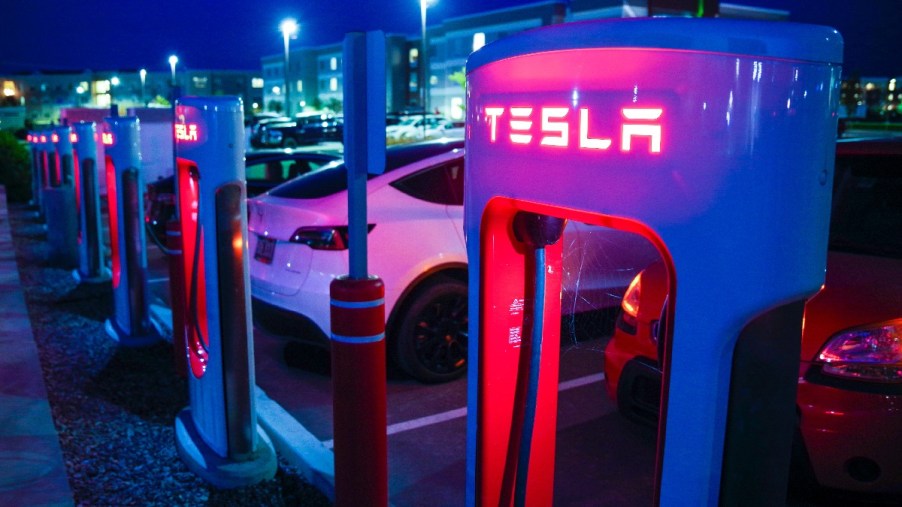
EVs Reduce Gas Usage in America Much Less Than You Might Think
The EV era is moving ahead at full force — as electric cars are increasingly becoming more popular. In order to address climate change and reduce our dependence on carbon-emitting fossil fuels, governments are enacting EV mandates. Also, most automakers have released new EVs and have many more in the works. People are driving electric cars more than ever, but how much does it actually reduce gas usage in America? According to a recent study, it’s much less than you might think.
Electric cars reduced gasoline consumption by only 0.54% in 2021

The Argonne National Lab, a research institute for the United States Department of Energy, recently released the results of a study about the impact of plug-in electric cars on gasoline consumption in the country. The study included both all-electric vehicles and plug-in hybrids (PHEV).
As detailed by Ars Technica, between 2010 and the end of 2021, Americans bought over 2.1 million plug-in electric vehicles. This includes 1.3 million fully electric cars.
That’s a huge number of electric vehicles, right? You would think that would make a big difference in reducing gas consumption. Not so much, says the Argonne National Lab. Despite all of these plug-in electric vehicles, gas usage in America was reduced by a paltry 0.54%.
There are still considerably more gas-powered cars than EVs on the road

EV enthusiasts might be disappointed about the results of the study. Conversely, some traditionalist car enthusiasts that dread the oncoming EV wave might cite the study as evidence that electric cars are not all that they are cracked up to be.
However, the primary reason why EVs don’t currently reduce gasoline consumption very much in America is there are still considerably more gas-powered cars on the road. The 2.1 million plug-in electric cars are a large number of vehicles — but it’s only a tiny fraction of the nearly 276 million total vehicles in the U.S.
There are not yet enough EVs compared to gas-powered ones to make a significant difference in reducing gasoline usage. That being said, with electric cars representing nearly 1% of total vehicles, it’s likely frustrating to many people that the reduction in gasoline consumption was only half a percent.
The study also found that EVs won’t crash the electrical grid
There are some EV naysayers that think that the increase in electric cars will crash the electric grid. During the severe power outages and blackouts in California earlier this year, some blamed the many electric cars in the state.
However, the Argonne National Lab provides evidence that refutes this belief. For its study, it found that in 2021, charging of EVs only accounted for 0.15% of electricity usage in the U.S.
More electric cars on the road will likely make a bigger difference in reducing fuel usage
It’s important to note that the findings of the Argonne National Lab study are not an argument against the merits of EVs. There are simply not yet enough electric cars on the road to significantly reduce gasoline usage. However, this will likely change once more people drive EVs.
The study looked at an 11-year period between 2010 and 2021. However, 2021 saw a huge increase in sales of electric vehicles. It more than doubled the previous year — from 308,000 vehicles to 634,000. The growth in electric cars will undoubtedly continue, resulting in less gas consumption.
However, the results of the study are a reminder that electric cars are not a panacea for resolving climate change, air pollution, and other transportation-related environmental problems. We’re not going to “out-consume” our way out of these problems.
Fully addressing these issues in the future will require an overhaul of our transportation system. It will also require less driving, as well as more people walking, riding bicycles, and using public transportation.


